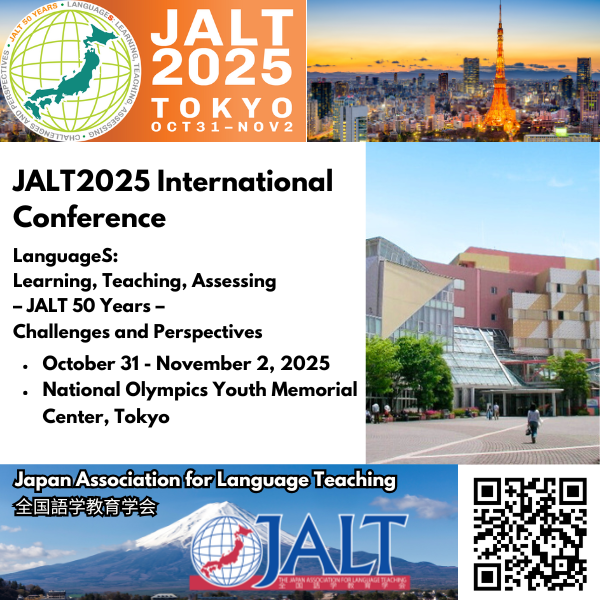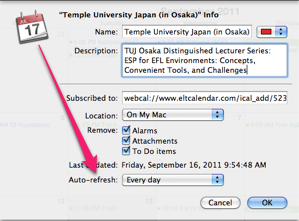Tokyo JALT:
Active Learning: Cooperative Learning in the College Classroom
Date: Friday, September 14th, 2007 Time: 7:00 PM - 8:30 PM
Speaker: Roger Johnson
Description:
There is a strong effort to make college classrooms a place where students are more active and less passive, where students talk through the material they are learning with others, and where students are connected to each other in a way that encourages them to share their ideas, seek help when they need it, and be concerned about the learning of their classmates. The key strategy for structuring this active learning environment is cooperative learning where students are put into groups that are structured to work cooperatively. Social Interdependence Theory contributes a set of basic elements of a cooperative relationship that provide the strategies for the instructor to create the cooperation in student groups. Cooperative Learning is an excellent example of translating theory to practice and is supported by a huge amount of research that supports cooperative work on numerous student outcomes including achievement, positive attitudes and relationships, and self-esteem and psychological health.
Speaker (biodata): Dr. Roger T. Johnson is a professor of Curriculum and Instruction at the University of Minnesota. He holds his doctoral degree from the University of California in Berkeley. He is the Co-Director of the Cooperative Learning Center. Dr. Johnson's public school teaching experience includes kindergarten through eighth grade instruction in self-contained classrooms, open schools, multi-age situations, cottage schools, and departmentalized (science) schools. At the college level, Dr. Johnson has taught teacher-preparation courses for undergraduate through PhD programs. He has consulted with schools throughout the United States and Canada, Panama, England, Germany, Norway, Sweden, Finland, and New Zealand. In 1965 Dr. Johnson received an award for outstanding teaching from the Jefferson County Schools, and has since been honored with several national awards including the American Psychological Association the American Society Engineering Education, National Council for the Social Studies, Minnesota Association for Supervision and Curriculum Development, Ball State University, and the Broek International Prize for Contributions to Education. Dr. Johnson is the author of numerous research articles, book chapters, and books. Nationally, Dr. Johnson is a leading authority on inquiry teaching and science education. He has served on task forces examining college policy, environmental quality, science education, math education, elementary education, and cooperative learning.
Space is limited for participation in this seminar. If you are interested in attending, please contact Megumi Kawate-Mierzejewska at seminars21ctokyojalt@gmail.com
Organization: Tokyo Chapter of the Japan Association for Language Teaching (Tokyo JALT)
Cost: JALT Members: free
Non-members: 1000 yen
Venue: Temple University Japan Room 213
Location: Tokyo, Tokyo Metropolis, Japan
![]() Add this to iCal
Add this to iCal
![]() (Need help?)
(Need help?)
![]() Add to Outlook
Add to Outlook
![]() (Need help?)
(Need help?)
Contact Tokyo JALT
Website: http://sites.google.com/view/tokyojalt
Email QR Code:
Email QR Code:






